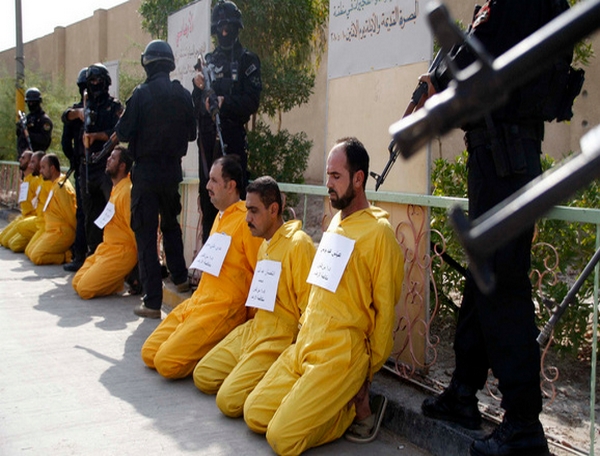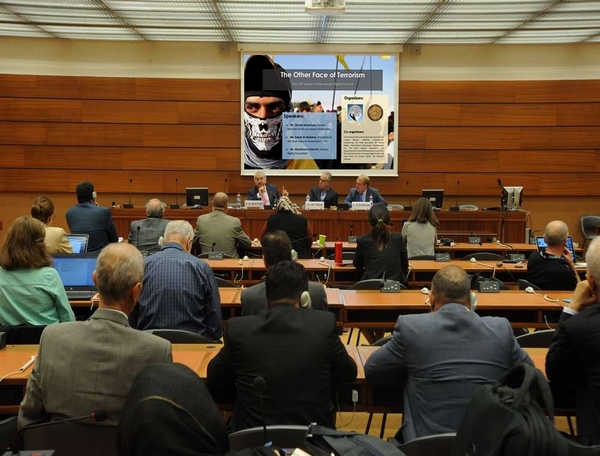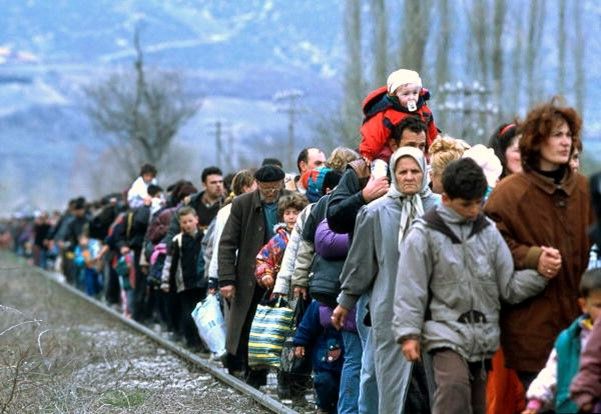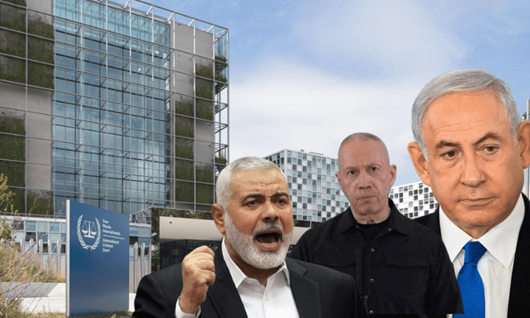January 26, 2007
By GICJ President, Dr Hans-C. Graf von Sponeck, former UN Assistant Secretary General and UN Humanitarian Coordinator for Iraq.
In the early nineties, people hoped for the irrevocable end to fear and the great peace dividend. Those governing limit themselves to fighting symptoms. The causes of terror are not a theme for them.
Freedom from fear and freedom from distress are the fundamentals of human security. The United Nations emphasized this when the Cold War allegedly ended. Freedom from distress should be gained with freedom from fear. The goal was to overcome malnutrition, sicknesses, poor education and inequality.
Since then, globalization has advanced rapidly. However, only a minority of the world’s population has benefited. The far greater part of humanity must struggle at the lower end of the quadrant for sheer physical survival, often without success, with less than one Euro per day per person.
The reality of life’s opportunities distributed crassly differently cannot be hidden any longer.
The rice farmers in Bangladesh, the shepherds in the mountain valleys of the Andes, the Bedouins on the Saudi Arabian peninsula and the industrial workers in Central America or Southeast Europe have not read the UN Charter in which a better life has been promised since 1945.
But all of them feel the unequal distribution of freedom and equality daily. They do not know about the un-kept promises for decades of the rich industrial countries to make the small contribution of 0.7 percent of their national revenue to reduce inequality. However, they see that goods from the industrial countries are available while few people have the means to buy them. On the other hand, their politicians know why. Many are unwilling to let their exports continue to suffer discrimination. That is a main reason why the Doha trade round of the World Trade organization broke down in 2006.
500 multi-millionaires have more capital than 460 000 000 fellow citizens
The struggle for freedom from distress and against this double standard will always be hard fought. There are partial successes. In 2000, the United Nations announced eight millennium goals to improve human security by 2015. The number of starving persons should be cut by half. All children in the world, boys and girls, should have access to elementary schools. Child mortality should be lowered by two-thirds and maternal mortality by three-quarters. The frequency of new HIV/AIDS cases and malaria should be considerably diminished and so on.
Still the progress is too slow. The goals are not reached. There is still over-nourishment and riches on one side and malnutrition and poverty on the other. State debt of the developing world remains high and with it political dependence on the outside world. At the same time, the budget deficits in the industrial countries are also growing. Yet, 500 billionaires have more capital than 460 million of their fellow-citizens in the world.
Politics in the West does not understand or take seriously the close connection between freedom from fear and freedom from distress. It also lacks understanding that inequality, poverty and humiliation have something to do with what is generally described as terrorism. The governing limit themselves to fighting symptoms and hoping to control terrorism with display of power and military provocation. The causes of terror are not a subject for them. They do not even try to understand and tackle these causes. As a result, the bondage of distress becomes an increasingly serious danger for freedom from fear. Fear grows and becomes fear of an imminent global catastrophe.
New alliances against western double standard
The West, intent on its privileges and consciously measuring with two kinds of yardsticks, provokes all sorts of reactions: from anti-western, especially anti-American, criticism to criminal terrorist acts. New alliances arise in the middle of this spectrum with the goal of ending this western double standard in very different areas. The Shanghai Cooperation Organization (China, Russia, Central Asian countries in association with India, Pakistan and Iran), the China-Africa partnership and the trio of trading countries Brazil, India and South Africa (Doha trio) are three of these alliances.
In this context, six Arab states (Algeria, Egypt, Morocco, the United Arab Emirates, Tunisia and Saudi Arabia) not surprisingly want to cooperate on questions of nuclear energy. In this area, there can be no double standard, if for no other reasons than sheer survival. However, the meeting in May 2005 at the UN headquarters in New York of the signatories of the Nuclear Non-Proliferation Treaty accepted on March 5, 1970 has shown that the double standard continues and hardens.
At this meeting, UN General Secretary Kofi Annan spoke of a “crisis of trust” in the areas of non-proliferation, disarmament and the peaceful use of nuclear technology. The differences among member states were great. Some spoke of the “danger of the proliferation of nuclear technology” and others of the “danger of the present arsenal” of nuclear weapons.
Documenting and reporting human rights violations in Iraq
| Executions | Human Rights Violations in the context of fight against terrorism | Peaceful protests | ||||
 |
 |
 |
||||
 |
 |
 |
||||







